Child Q unsure she will 'feel normal again'
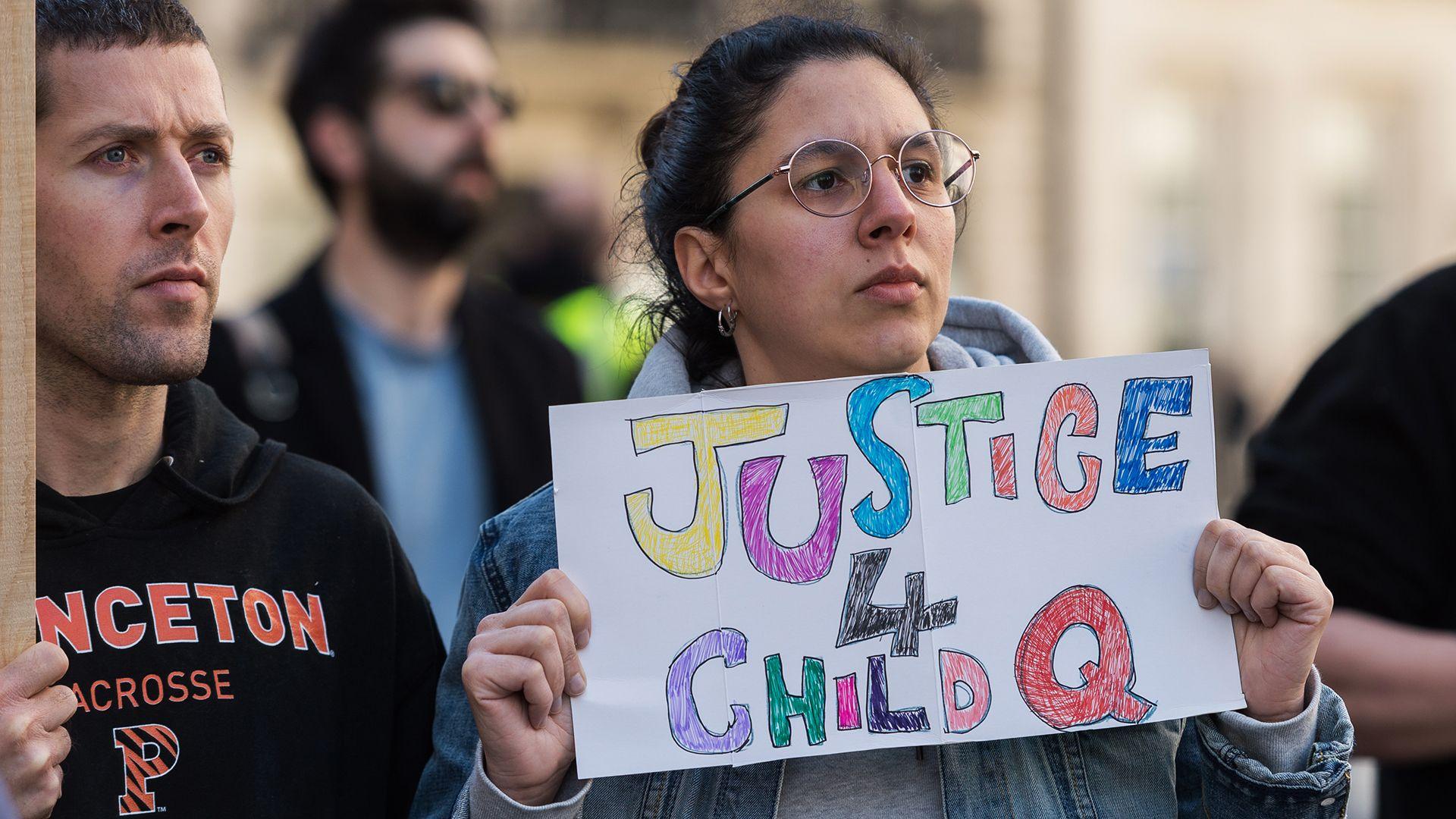
Child Q was strip-searched by police at her east London school in 2020 - demonstrators highlighted the incident while campaigning against institutional racism outside the BBC's HQ and elsewhere in 2022
- Published
A woman who was strip-searched when she was 15 by two Met Police officers has said she does not know if she is "going to feel normal again" after the officers were sacked.
A tribunal found the actions of trainee Det Con Kristina Linge and PC Rafal Szmydynski amounted to gross misconduct after the girl - known as Child Q - was searched at her school in Hackney, east London, in December 2020.
The black schoolgirl, who was wrongly suspected of possessing cannabis, was on her period and forced to expose her intimate parts while no appropriate adult was present.
A third officer, PC Victoria Wray, was found to have committed misconduct for her role in the search and was given a final written warning.
In a statement released via Bhatt Murphy Solicitors after the hearing, Child Q said: "Someone walked into the school, where I was supposed to feel safe, took me away from the people who were supposed to protect me and stripped me naked, while on my period.
"I can't go a single day without wanting to scream, shout, cry or just give up. I don't know if I'm going to feel normal again. But I do know this can't happen to anyone, ever again."
'She's a changed person'
The panel had heard that black schoolchildren were more likely to be treated as older and less vulnerable than their white peers.
However, neither age nor race was found to be a factor in the way 15-year-old Child Q was treated.
At the end of May, new rules were due to come into effect that would mean any police officer proven to have committed gross misconduct would be sacked, external.
Child Q: Teenagers ask 'could this happen to me?'
- Published26 June
Cdr Kevin Southworth said in a statement: "The experience of Child Q should never have happened and was truly regrettable.
"We have sincerely apologised to Child Q since this incident happened. Again, I am deeply sorry to Child Q and her family for the trauma that we caused her, and the damage this incident caused to the trust and confidence black communities across London have in our officers."
Child Q's mother said in a statement: "Professionals wrongly treated my daughter as an adult and as a criminal and she is a changed person as a result. Was it because of her skin? Her hair? Why her?
"After waiting more than four years I have come every day to the gross misconduct hearing for answers and although I am relieved that two of the officers have been fired I believe that the Metropolitan Police still has a huge amount of work to do if they are to win back the confidence of Black Londoners."
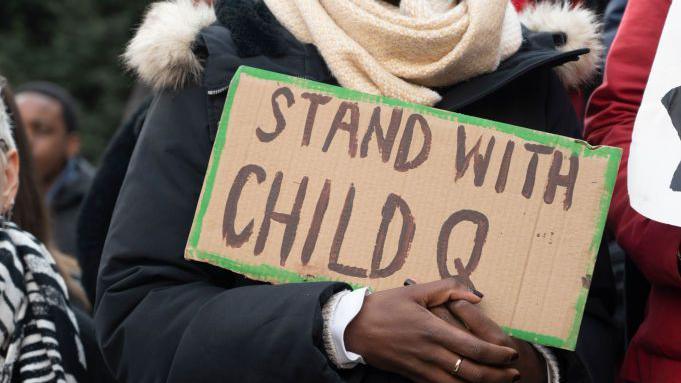
The Met Police acknowledged organisational failings in the search of the girl
During the hearing, held in south-east London, the search was described as unjustified, inappropriate, disproportionate, humiliating and degrading.
It was instigated after the deputy safeguarding manager at the school called the police and said the child "smelt strongly of cannabis".
Panel chair Cdr Jason Prins said the search "was improper and conducted without an appropriate adult".
He added that Child Q's position as a "vulnerable or a potentially exploited child was not adequately considered".
"The potential effect of a 15-year-old going through puberty had not been considered," he said.
Child Q - whose mother was not told about the search - felt "demeaned" and "physically violated" and did not give evidence at the four-week hearing because of the psychological effects the strip-search had on her, the panel heard.
'There's a level of fear'
The panel was told that the officers failed to get authorisation at sergeant level or higher before they took action, which went against police policy.
It was also alleged that no adequate concern was given to Child Q's age and sex, especially after she removed her sanitary towel.
The Independent Office for Police Conduct said the decision to strip-search Child Q on suspicion of possessing a small amount of cannabis was "completely disproportionate".
Child Q violated in strip-search, hearing told
- Published3 June
Strip-search police told girl she may be arrested
- Published12 June
The panel heard that black people were disproportionately more likely to be stopped and searched by police.
However, the panel did not accept an "inference" that the girl's race caused "less favourable treatment".
Details of Child Q's case were released in a safeguarding report, external in 2022, which said the search was unjustified and that racism was likely to have been a factor.
There were widespread protests about the girl's ordeal and calls for urgent action from the government.
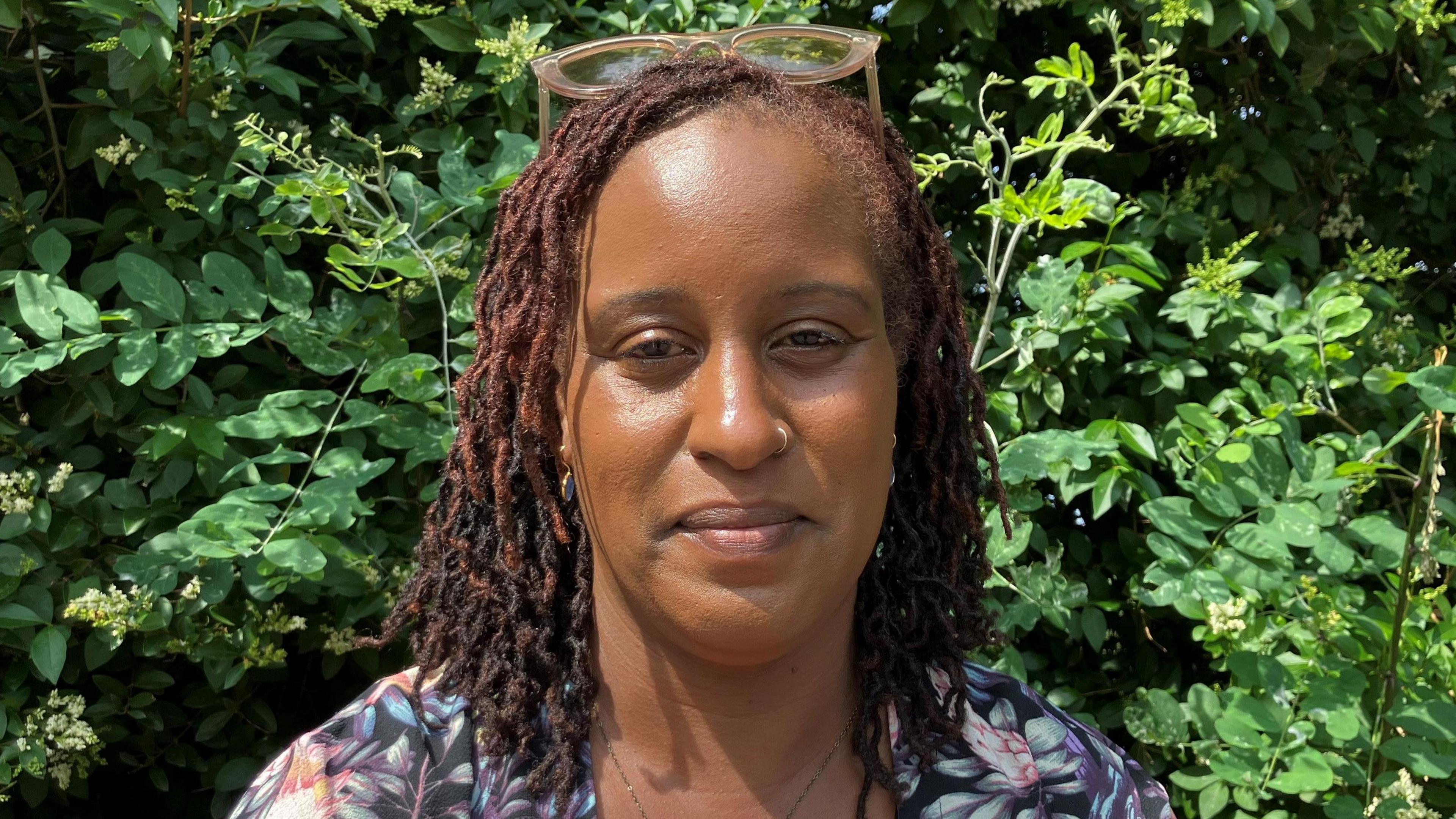
Tanya Obeng said for many black people there was a "level of fear" surrounding the police
Tanya Obeng, who works as a therapist, took part in one of the demonstrations in Hackney about the strip-search. She said many black people did not trust the police.
"There's a level of fear and I think for Caucasians, there's a level of safety. That is the disparity," she said.
Reacting to the panel's findings, Prof Louise Owusu-Kwarteng, who teaches applied sociology at the University of Greenwich, said black children were often unfairly labelled at school.
"It was almost like this escalation, automatically assuming that she had done something wrong without doing the due process," she said.
Sharon Adams, from Hackney, has a young daughter and still feels deeply upset by the way Child Q was treated.
"They already had that perception of her and no matter what she would have said it just went out the window. She didn't have a voice in that moment," Ms Adams said.
'Catalyst for change'
Cdr Southworth said in his statement that the force acknowledged there were organisational failings in the search of the girl, external.
"Training to our officers around strip-search and the type of search carried out on Child Q was inadequate, and our oversight of the power was also severely lacking," he said.
"This left officers, often young in service or junior in rank, making difficult decisions in complex situations with little information, support or clear resources to help their decision-making."
He said the search of Child Q had been a "catalyst for change" for the force and policing nationally.
"While we should not have needed an incident such as Child Q to check our approach, it has absolutely led us to improving our processes and significantly reducing the number of these types of searches carried out."
Children's commissioner Dame Rachel de Souza described the case as "shocking and profoundly disturbing".
"Child Q's case has to be a line in the sand," she said.
"The strip-searching of children should never form part of routine policing. It must only be used as a last resort if there is an immediate risk of harm to the child or others, with proper safeguards in place – children should never be put through such traumatic experiences without rigorous standards."
Listen to the best of BBC Radio London on Sounds and follow BBC London on Facebook, external, X, external and Instagram, external. Send your story ideas to hello.bbclondon@bbc.co.uk, external
Related topics
- Published11 June
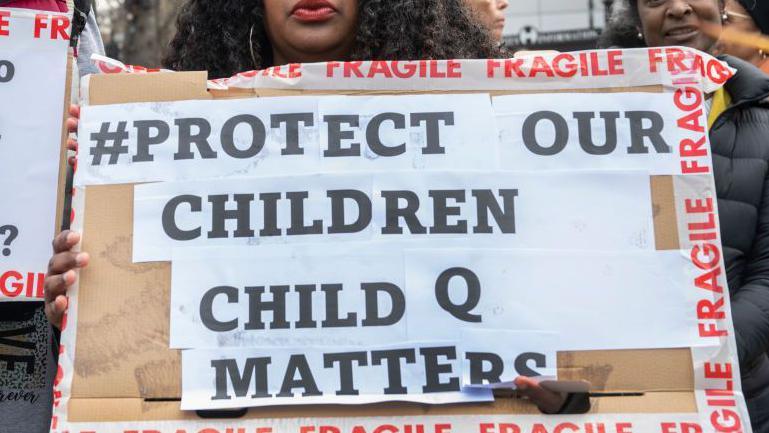
- Published10 June
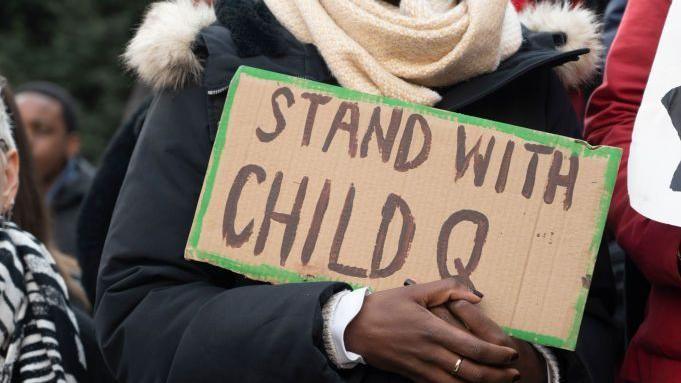
- Published4 June
